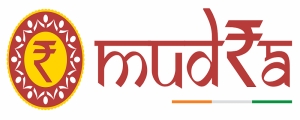Home Loans

Home Loans
Home loans, also known as mortgages, are financial instruments that enable individuals to purchase or refinance residential properties. These loans are a crucial component of the real estate market, providing a means for people to fulfill the dream of homeownership. The process typically begins with a potential homeowner applying for a home loan from a financial institution, such as a bank or mortgage lender. The loan amount is determined based on various factors, including the individual's creditworthiness, income, and the appraised value of the property.
One of the key features of home loans is the repayment structure. Most home loans have a fixed or adjustable interest rate, and borrowers make monthly payments over an extended period, often spanning 15 to 30 years. The interest paid on the loan, along with the principal amount, constitutes these monthly payments. Home loans are secured by the property itself, meaning that if the borrower fails to make the required payments, the lender may have the right to take possession of the property through a legal process known as foreclosure.
There are different types of home loans to cater to the diverse needs of borrowers. Conventional loans, backed by private lenders, and government-backed loans, such as those insured by the Federal Housing Administration (FHA) or guaranteed by the Department of Veterans Affairs (VA), are common options. Each type has its eligibility criteria, down payment requirements, and terms, allowing borrowers to choose a loan that best suits their financial situation.
The home loan application process involves a thorough evaluation of the borrower's financial history, credit score, and debt-to-income ratio. Lenders also consider the appraised value of the property and may require a down payment, which is a percentage of the home's purchase price paid upfront by the borrower. Some government-backed loans offer lower down payment options, making homeownership more accessible to a broader range of individuals.
Interest rates play a crucial role in home loans, influencing the overall cost of borrowing. Borrowers can opt for fixed-rate mortgages, where the interest rate remains constant throughout the loan term, providing predictability in monthly payments. On the other hand, adjustable-rate mortgages (ARMs) have interest rates that may change periodically, affecting the monthly payments. Choosing between fixed and adjustable rates depends on the borrower's risk tolerance and market conditions.
Home loans often come with additional costs, such as closing costs, which include fees for appraisals, title searches, and other services. Borrowers should carefully review these costs and factor them into their budget when considering a home loan. Additionally, private mortgage insurance (PMI) may be required for borrowers who make a down payment below a certain threshold to protect the lender in case of default.
The home loan market is dynamic, with interest rates fluctuating based on economic conditions. Borrowers may choose to refinance their existing home loans to take advantage of lower interest rates, reduce monthly payments, or change the loan terms. Refinancing can be a strategic financial move for homeowners, but it requires careful consideration of associated costs and potential benefits.
In conclusion, home loans are instrumental in facilitating homeownership by providing individuals with the financial means to purchase or refinance residential properties. The variety of loan options, repayment structures, and eligibility criteria make it possible for a broad spectrum of individuals to achieve their homeownership goals. However, it is essential for borrowers to thoroughly understand the terms of their home loans, including interest rates, repayment schedules, and associated costs, to make informed decisions and ensure a successful homeownership journey.
Send Enquiry





